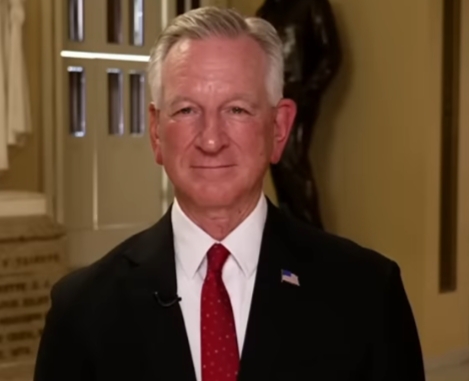In this in-depth conversation, Alabama Senator Tommy Tuberville joins veteran economic analyst and host Larry Kudlow to break down the most pressing issues currently facing the U.S. economy and society. The discussion opens with strong criticism of the Federal Reserve and its Chairman Jerome Powell, questioning the Fed’s rate policies, inflation handling, and lack of accountability. Senator Tuberville suggests Powell might only remain in his position for a few more months unless major changes occur.
Senator Tommy Tuberville and Larry Kudlow Discuss Inflation, Tariffs, AI, Crime, and America’s Economic Future
In a wide-ranging and high-energy exchange, Alabama Senator Tommy Tuberville joined Larry Kudlow to discuss the pressing economic, fiscal, and political issues shaping the United States today. Their conversation touched on everything from Federal Reserve leadership to energy policy, the national debt, artificial intelligence infrastructure, and the crime wave across American cities.
Here’s a full breakdown of their exchange and the critical points raised:
Jerome Powell and the Federal Reserve senator Tommy Tuberville addressed Jerome Powell’s position as Federal Reserve Chair, stating that he is likely to remain in office for “only six more months” unless something drastic happens. Despite political frustrations, Tuberville noted he had gotten to know Powell over the years and questioned whether political motivations were driving Federal Reserve actions—especially with regard to interest rates during election cycles.

Kudlow criticized the Fed’s stubborn stance and argued there is no concrete evidence suggesting that tariffs are inflationary. He emphasized that current inflation numbers are already well below the Federal Reserve’s target.Tariffs, Growth, and BudgetThe conversation pivoted to the impact of tariffs on the broader economy.
Kudlow referenced economist Scott Bessent’s projection that tariff revenue could reach $300 billion in fiscal year 2025, suggesting that this unexpected income could contribute positively to federal finances.
Kudlow laid out what he called a “growth dividend” strategy: combining tariff revenues, tax incentives, deregulation, and productivity-enhancing technologies like AI to drive 3.5% or higher GDP growth. He argued that this approach could yield $4–5 trillion in economic benefits over the next several years.
Tommy Tuberville agreed that tariffs and economic growth could help reduce the federal deficit, but he stressed that long-term sustainability depends on cutting government spending. He pointed out that, despite attempts, only $9 billion in cuts had been pushed through Washington D.C.
He referenced President Reagan’s spending cuts in 1981 and President Trump’s 2018 rescission package as rare examples of fiscal restraint.Massive Debt and Fiscal ChallengesThe senator and Kudlow warned of unsustainable fiscal trends, citing projections that the U.S. will spend $26 trillion more than it takes in over the next decade.
Tommy Tuberville stated bluntly, “We can’t sustain that, Larry. This country will not be able to hold up to that number.” Kudlow lamented that efforts to pass rescission bills were blocked by just a few Republicans and regional political concerns.Energy Policy and AI Infrastructure Tommy and Kudlow emphasized the need to solve the U.S. energy crisis, with Tommy Tuberville calling for a return to aggressive domestic energy production, repeating the Trump-era slogan “Drill, baby, drill.”Tuberville cited real-world obstacles in Alabama, where attempts to build data centers for AI applications are being hampered by inadequate electricity infrastructure.
He warned that the U.S. is falling behind China in the AI race due to energy bottlenecks and lack of infrastructure to support rapid technological advancements.Crime, Law Enforcement, and Social OrderTowards the end of the discussion, the two turned their attention to crime in America. Tuberville emphasized that neighborhoods are becoming increasingly unsafe and called for decisive action to clean up the streets
Kudlow responded with a hardline stance on criminal justice, suggesting 20–25-year sentences and stricter punishments to deter criminal behavior.Tuberville concluded that law enforcement officers need the authority and support to protect themselves and citizens from growing lawlessness. He stressed that the American people deserve safe communities and that restoring order is essential for the country’s future.
Conclusion: The dialogue between Senator Tuberville and Larry Kudlow painted a stark yet urgent picture of the challenges facing America. From the fiscal cliff and monetary policy to energy independence and the AI race, their conversation highlighted the tough decisions policymakers must make to secure the nation’s economic and social stabilit
